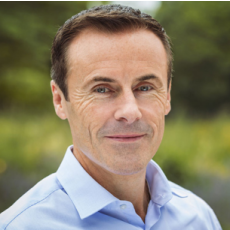There has been a lot of divestment and acquisition activity at Johnson Matthey over the past few years. What is your strategy and vision for Johnson Matthey right now?
When I joined Johnson Matthey over two years ago, it resembled a chemical industrial conglomerate with a diverse array of businesses. It was evident that while we led globally in some areas, in others we ranked much lower and these would require significant investment. We decided to identify and focus on our core competencies, which are based on our over 200-year history in platinum group metals and catalysis. These areas are where we excel and can sustain world-class leadership. Our strategy involves concentrating on businesses like clean air technologies, particularly automotive catalysts which have been a big part of our portfolio for 50 years, and emerging sectors critical to the net-zero transition like catalyst technologies and green hydrogen solutions.
The auto-catalyst process at Johnson Matthey utilizes precious metals to facilitate chemical reactions that eliminate pollutants from vehicle emissions, ensuring the air remains clean. This process is hidden yet continuously operates in vehicles, playing a crucial role in environmental protection by utilizing minimal quantities of these metals to significantly reduce pollutants. Many thousands, possibly millions, of deaths have been averted due to this technology. This efficiency is not only beneficial for the environment but also exemplifies the sustainable use of valuable resources. As an example, our catalyst technology has been a key reason for the extension of a car’s lifespan from 9 years to between 10-12 year lifespan.
What makes the use of platinum group metals in Johnson Matthey's technologies particularly significant?
Platinum group metals are central to our technology, especially in our clean air solutions. These metals facilitate a circular business model, as their value allows for their reuse and recycling, promoting sustainability within our operations. When vehicles reach the end of their life, we recover these metals and reintroduce them into new products, maintaining a cycle that reduces the need for raw material extraction and minimizes our environmental footprint.
Could you provide details on the Fischer-Tropsch process and Johnson Matthey's growing aspirations to penetrate the fast-growing sustainable aviation fuel market?
The Fischer-Tropsch process is an established technology that Johnson Matthey has refined to become a market leader. This process transforms various forms of feedstock, such as municipal waste or biomass, into synthetic crude oil, which is then converted into sustainable aviation fuel. The recent announcement of a $4 billion project to build the world’s largest sustainable aviation fuel plant using this technology is a testament to our leadership and commitment to expanding our impact in renewable energy solutions.
Can you tell us more about your low carbon hydrogen project with BP and how it relates to other blue ammonia projects in the U.S.?
Our project with BP, focusing on low carbon hydrogen—often referred to as blue hydrogen—primarily uses natural gas as a feedstock. This is especially attractive in the U.S. due to the availability and cost-effectiveness of shale gas, coupled with incentives from the Inflation Reduction Act. These factors make the production of low-carbon hydrogen and ammonia economically viable. Similarly, in the UK, we are engaged in several such projects with major industry players like BP, Equinor, and Linde, leveraging our technology to help decarbonize hydrogen production.
Given your focus on decarbonization, do you feel the divestment from other assets to focus exclusively on the energy transition is a risk?
Focusing on our foundational businesses like Platinum Group Metals Services and our automotive catalysts division, which are cash-generative today, has proven advantageous. These businesses provide the financial backbone for our high-growth ventures in sustainable aviation fuel (SAF), low carbon hydrogen, and hydrogen technologies for fuel cells and electrolyzers. We're utilizing the substantial cash flows from our established sectors to fund these emerging technologies. Moreover, unlike startups that may struggle with scaling and funding in the current economic climate, or traditional industrial firms that may lack future-oriented businesses, our balanced portfolio allows us to navigate and adapt to market changes effectively, ensuring both stability and growth.
What are your thoughts on the future of the chemicals and manufacturing industry in the UK, especially considering its resource limitations compared to other chemical hubs?
The UK, despite its challenges, holds a distinct geographic advantage given its extensive coastline (for carbon storage), plentiful supply of wind and of course existing oil and gas infrastructure which can be repurposed. This, coupled with the strategic establishment of low-carbon hydrogen hubs around old industrial centers, positions the UK well to compete effectively in the renewable energy sector. As long as policy remains supportive, the UK has the potential to maximize these advantages and remain a competitive player in the global market, despite having less sunlight compared to other regions.
What makes your technology in biodegradable plastics, such as butanediol, stand out?
Our core expertise in catalysis enables us to foster chemical reactions with greater efficiency and less waste, which is crucial in the production of biodegradable plastics. This efficiency translates into higher product efficacy and cost-effectiveness, distinguishing our technology in the biodegradable plastic market.
By 2030, we anticipate that about a fifth of the global biodegradable plastics market will utilize Johnson Matthey technology, particularly strong in regions like China, where the demand for eco-friendly solutions is rapidly increasing.
Looking ahead, how would you like Johnson Matthey to be recognized in two to three years?
In the next few years, I envision Johnson Matthey transitioning from being primarily recognized as an automotive catalyst company to being celebrated as a leader in enabling the net zero transition. We aim to be known for our advancements in low carbon hydrogen, sustainable aviation fuel, and green hydrogen technologies. Although we are a B2B company and not widely known outside industry circles, our goal is to be acknowledged more broadly for our contributions to sustainable technology and the net-zero transition.





